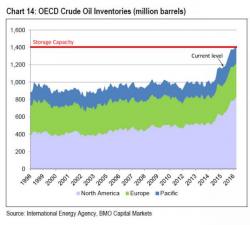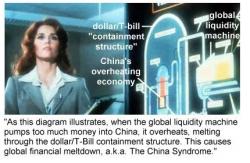The Cost Of China's "Neutron Bomb" Exploding: $7.7 Trillion And Higher
On Friday we presented Kyle Bass' latest interview in which the Texas hedge fund manager explained the reasoning why he thought shorting the Yuan is the "greatest investment opportunity right now." The crux behind the argument was well-known to Zero Hedge readers, namely China's peaking credit cycle driven by soaring bad, or non-performing, loans which have so far been swept away, but which courtesy of a $35 trillion financial system are nothing short of a "neutron bomb", as we first dubbed the embedded risk, waiting to go off. Here is Bass:


